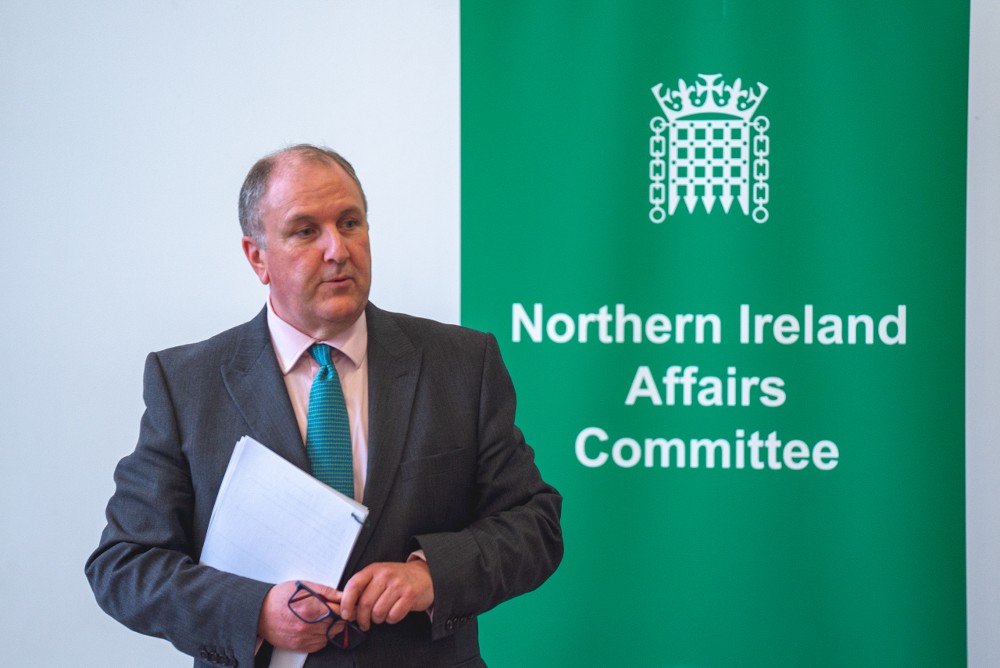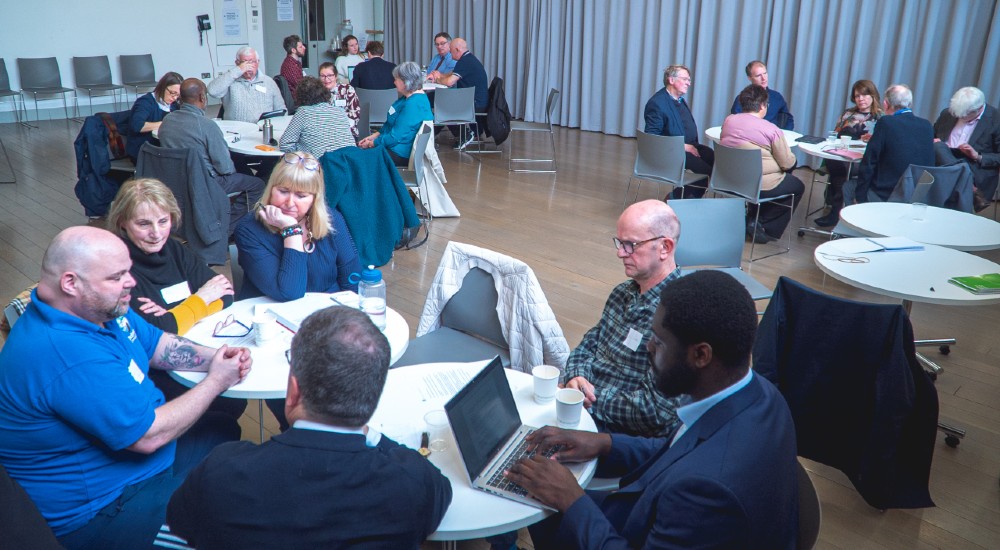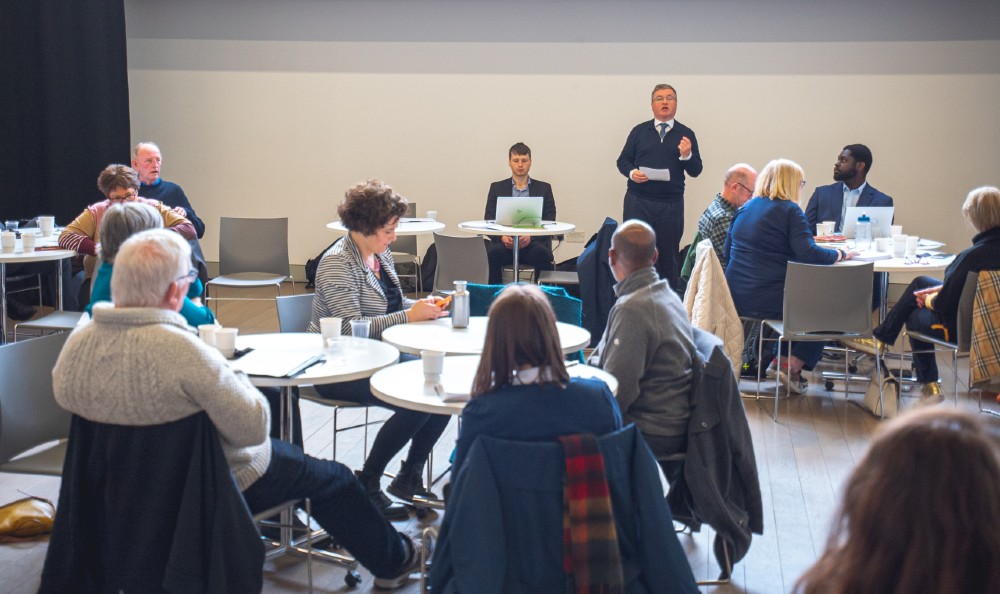In this blog post, Chris Shaw (Clerk of the Foreign Affairs Committee in the UK House of Commons) explores three pilot projects on participatory democracy carried out by Select Committees in the UK House of Commons and discusses the ways in which deliberative engagement can enhance committee scrutiny activities.
Introduction
Committees in the UK House of Commons recently completed trials of public engagement events to test the value of participation by citizens in their work. All three pilot projects produced some really positive feedback and data on the potential for deliberative methods to make a valuable contribution to the scrutiny of policy in Parliament.
Background
For several years, select committees in the House of Commons (which do scrutiny rather than legislation) have been developing an appetite for public engagement in their work, whether it be through visits, round tables, or online surveys and forums.
These have added depth and colour to the traditional, more formal, processes of examining written submissions and holding public hearings. They have also sponsored more ambitious deliberative exercises: citizens’ assemblies on health and social care in 2018 and on climate change (the path to net zero) in 2020.

The pilots
In 2023, three select committees took advantage of offers from established providers (Involve and IDEA, Ohio State University) to run deliberative events in support of forthcoming committee inquiries.
• The Justice Committee held a deliberative engagement exercise to support its inquiry into public opinion and understanding of sentencing. This comprised 25 people, broadly representative of the population, who met for three half-days.
• The Home Affairs Committee held an online town hall event, for 1,300 people, in support of its inquiry into policing priorities. It was attended by committee members and a Police and Crime Commissioner.
• The Northern Ireland Affairs Committee held an online town hall event, for 270 people, in support of its inquiry into the effectiveness of the institutions of the Belfast / Good Friday Agreement. It was attended by committee members from different political parties. It complemented this with an in-person engagement event in Belfast.
In each case, participants completed surveys about their views before and after the engagement event or, in the case of the Justice Committee, were asked about the extent to which their participation had changed their views.
Rationale
Understanding public attitudes – and the reasons behind them – was crucial to all three inquiries. The committees were keen to reach out beyond the interest groups and non-governmental organizations (NGOs) – who regularly submit evidence to inquiries – to converse with a representative sample of the population, most of whom would not ordinarily stop and consider policy challenges which may be complex, but nonetheless affect them directly.
In the case of the Northern Ireland Affairs and the Justice committees, they wanted to secure quantitative and qualitative data to supplement written evidence and also, in Northern Ireland, in-person community engagement. The Home Affairs Committee wanted to use a method which would allow ordinary people to consider the pros and cons of prioritising different areas of policing over others.
The Chair of each Committee participated in order to demonstrate political buy-in and, in the case of the Home Affairs Committee, an elected Police and Crime Commissioner led the online discussion by setting out some of the difficult decisions about prioritisation that he faced every day.
Listening in to the discussions, I was struck by the quality of the questions asked by the public and the consensual way in which the participating politicians engaged with the process and participants. This may have come as a shock to those whose engagement with politics was limited to catching occasional glimpses of Prime Minister’s Questions.

Results and impact
All three committees involved in the pilots found these deliberative activities very useful to their work. Two of them went on to make recommendations in their reports for further use of deliberative methods by the Government for policy making.
So what was the added value that these exercises provided?
In part, they served to provide reinforcement – additional validation – to the messages from known contributors with established views. But at times they also provided new insights directly from the public.
For example, the Justice Committee dialogue revealed strong support for an additional, new priority to be used for sentencing: the need to provide justice for the victims of crime. The Committee’s report recommended that the Ministry of Justice should conduct “regular, structured, deliberative engagement exercises with members of the public as part of policy development process” and that the Sentencing Council too should consider taking a similar approach in revising its Sentencing Guidelines.
In response to the report, the Government agreed that “public opinion absolutely plays a pivotal role in shaping sentencing policy” and the Sentencing Council agreed to “consider” whether structured deliberative engagement exercises like this one may benefit its ongoing work on encouraging a greater range of responses to public consultations. So, a positive, if non-committal response, which reflects the absence of a fully developed Government view on the use of deliberative methods in policy making.

The Northern Ireland Affairs Committee’s online town hall and in-person engagement event produced several insights that probably would not have surfaced through the normal processes of gathering information. There was overwhelming enthusiasm for a strong voice being given in the design of any new political institutions to those not identifying with one of the two main communities.
The Committee found “clear, compelling evidence that much of the public are more open to change than the political class”. For example, the requirement for cross community support for any changes was identified as a barrier to reform which should be addressed. The non-partisan and informed nature of the deliberative approach was evidently very influential on the Committee: it concluded that “Citizens’ assemblies have the potential to empower people to find solutions and reach across deep divides in a way which politicians—except perhaps in the case of events leading up to Good Friday 1998—rarely can”.
It recommended that the Government establishes a Northern Ireland Citizens’ Assembly to consider institutional reform and to feed into a wider review. Since the Committee reported, the Northern Ireland Executive has been re-established and the Government has indicated that public engagement is a matter for the Executive.
Participants in the process were certainly enthused: some 95% of them said that deliberative events were valuable for democracy and should be a more regular part of the political process.

Finally, the Home Affairs Committee town hall on policy provided a useful and unique insight into how the public viewed the difficulties involved in balancing competing priorities in an environment of constrained resources. The summary of the views provided after the discussion indicated a strong consensus around some issues (for example, improved vetting of and training for police officers; ethnic minorities being treated worse by police) and less consensus on others (support for victims of crime).
The impact and value of the dialogue was demonstrated by the fact that 80% of participants said that they had changed their views as a result of their engagement in the town hall. This was supported by the evaluation data which indicated a substantial increase in the participants’ trust in the committees as a result of their involvement, although the increase in respect of Parliament as a whole was marginal.
The impact on MPs is perhaps harder to discern. Anecdotal evidence suggests that they valued the opportunity for more in-depth discussion with the public. The strength of feeling amongst participants in the Northern Ireland Affairs Committee town hall on the failings of the current political arrangements and the willingness to think across community lines may have been a surprise to some MPs more used to engaging with people on a party political basis.
What next?
Looking ahead, these pilots have proved to committee MPs and to participants that deliberative engagement can add to the depth and breadth of committee scrutiny activities. They contribute to an ever-increasing portfolio of public engagement activities being undertaken by committees.
The challenge is now to further establish these types of activities in the toolbox of scrutiny that committees have at their disposal and, in the new Parliament, to increase trust in them amongst public, politicians and government alike.
About the author
Chris Shaw is Clerk of the Foreign Affairs Committee at the House of Commons, UK Parliament, and was the lead official on the establishment of Climate Assembly UK. Chris is a member of the International Parliament Engagement Network (IPEN) Executive Team.
Images
1, 4 & 5: Public engagement event held by the Northern Ireland Affairs Committee in Belfast. Credit: UK Parliament/Tyler Allicock.
2: Speech bubbles on window. Image courtesy of Involve.
3: Online meeting. Image courtesy of Involve.
Article published: 19 March 2024

